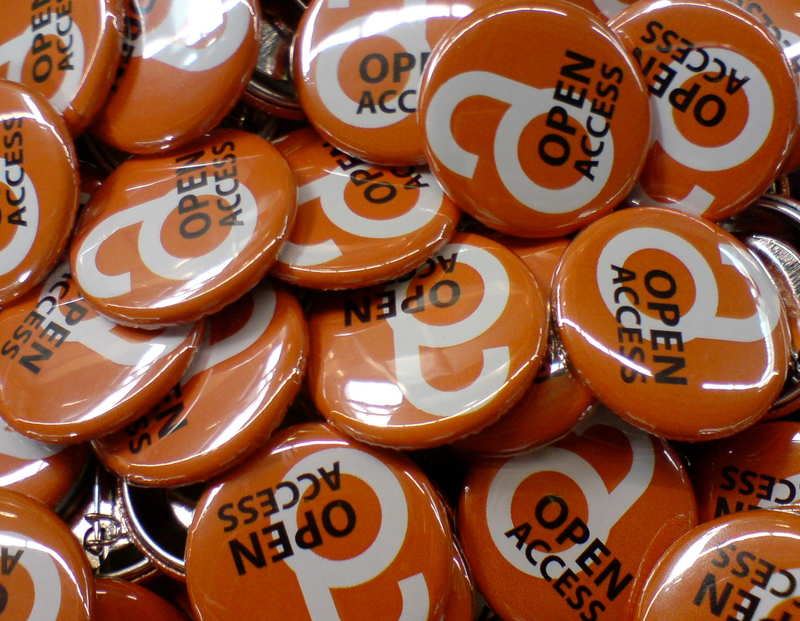New age of academic publishing
30 April 2019 | Story Robin Crewe and Wieland Gev. Photo H_pampel, Flickr. Read time 6 min.
There is a digital revolution underway. It’s changing how many things are done – including scholarly publishing. The way that academic research is published, and its availability, has shifted over time.
Academic and scholarly journals used to be available only in hard copy. Then came fairly ubiquitous internet access. This ushered in increasingly expensive subscription access to digital copies of journals. And then open access publishing arrived. Today it’s becoming increasingly easy and free to access academic research that was once hidden behind pay walls in specialist journals.
This changing landscape prompted the Academy of Science of South Africa to carefully study the potential impact of the digital revolution on scholarly publishing. The Academy’s first report on the topic was published in 2006. Presciently, it advocated that the digital revolution would radically change both the nature of and access to scholarly published material. It recommended that journals published in southern Africa should embrace open access online publishing to improve the visibility and accessibility of research.
The Academy implemented many of the report’s recommendations. It established the SciELO SA journal platform and peer review of South African journals.
The second report was published three years later. It dealt with scholarly book publishing. Its recommendations included a call for books to attract higher numbers of publication units in the Department of Higher Education and Training’s evaluation of publication outputs from universities. This meant that books generated increased funding for universities.
Now the Academy has produced its third study of scholarly publishing. It contains recommendations we hope will equip academics, scholars and publishers in South Africa and elsewhere in the region with the tools to navigate the next five to ten years.
Among other things, the report calls for quality over quantity when it comes to locally produced scholarly journals. It also recommends that these should all be open access. Discussions are needed at a national level about affordable, sustainable article processing charges. These are the fees that journals charge to accept, edit and publish articles.
Recommendations
The report presents a bibliometric analysis of all forms of peer-reviewed scholarly publishing in South Africa between 2004 and 2014 – books, journal articles and conference proceedings. The analysis was carried out by the Centre for Research on Evaluation, Science and Technology at Stellenbosch University.
This yielded many positive findings. Among them are the effectiveness of the Department of Higher Education and Training’s publication incentive funding.
But there are concerns, too. The analysis found evidence of academics publishing in predatory journals and conference proceedings. In these instances, academics paid for their research to be published without it going through peer review or any proper assessment process. There were also examples of questionable editorial practices; for instance, editors or members of editorial boards publishing in their own journals.
Academics and institutions must be more vigilant when it comes to identifying and avoiding predatory publishers and conferences. Editors of scholarly journals should be required to adhere to the National Scholarly Editors Forum code of conduct.
The ASSAf report
This historical view of the South African system’s performance was complemented by a set of recommendations for its future. The main finding was that open access publishing should be mandatory and publicly funded data generated by universities, should be freely available.
These are some further key recommendations outlined in the report.
First, South Africa needs a smaller set of sustainable high-quality local scholarly journals. These must all be online and open access. They must be indexed on SciELO SA or international indexes that screen out predatory journal publishers.
Second, the National Scholarly Editors’ Forum needs to reach an agreement with non-commercial journal publishers about affordable article processing charges. These could replace subscriptions.
Alongside this process, the Departments of Higher Education and Training and of Science and Technology, universities and their libraries, and the country’s National Research Foundation need to discuss how article processing charges could be funded from current expenditure on journal subscriptions.
There also need to be urgent discussions among these role players and multi-national mega publishers of commercial journals. These publishers often charge high article processing charges, offer subscription models that aren’t affordable for South African and other developing country institutions, or both. More affordable deals need to be negotiated.
Finally, a national, regional and continental debate is needed to develop a system of high-quality journals for Africa. These journals would provide visibility for scholarship on the continent while at the same time minimising the deleterious effects of predatory publishing and dubious editorial practices.
Moving forward
These recommendations are based on the assumption that the research community and the institutions that support it can ensure a credible, affordable, and reputable scholarly publication system in South Africa. This can happen if all these stakeholders are proactive.
Susan Veldsman, Director: Scholarly Publication Unit at the Academy of Sciences in South Africa, co-authored this article.![]()
Robin Crewe, Professor of Zoology and Senior Research Fellow, Centre for the Advancement of Scholarship, University of Pretoria and Wieland Gevers, Emeritus Professor of Medical Biochemistry, University of Cape Town.










